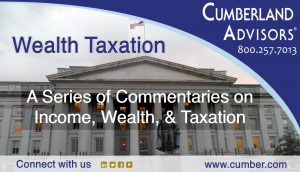Democratic presidential candidates Castro, Sanders, and Warren have explicitly sponsored wealth taxation.
Readers may view the candidates’ proposals at their campaign websites:
Castro: https://issues.juliancastro.com/working-families-first/
Sanders: https://berniesanders.com/issues/tax-extreme-wealth/
Warren: https://elizabethwarren.com/plans/ultra-millionaire-tax
A New York Times article published last week considers the economic implications of both Sanders’ and Warren’s proposals: “Democrats’ Plans to Tax Wealth Would Reshape the U.S. Economy” (https://www.nytimes.com/2019/10/01/us/politics/sanders-warren-wealth-tax.html).
Here are some of our bullets.
1. Is there a workable system to rank wealth for progressive wealth taxation? Remember that a progressive taxation system needs breakpoints and thresholds. Here is a Bloomberg Businessweek article on this subject, titled “Everyone has a wealth number. What’s yours?” https://www.bloomberg.com/news/articles/2019-09-30/everyone-has-a-wealth-number-what-s-yours
2. Will charities be included? My colleague Matt McAleer and I have discussed the billions a year in American philanthropy that might disappear under a “billionaire tax scheme.” Bill and Melinda Gates are a prominent example of philanthropists who would have less to give.
3. If charity is exempt from wealth taxation, the exemption rules invite evasive behavior and investment changes. If charity is included, other changes will occur. A key point is that static analysis of these tax schemes is likely to be wrong as to the magnitude of results. Estimates from political candidates are likely to be heavily biased. The same is true for estimates from incumbents.
4. Can you equate a wealth tax to an income tax? Yes. With a few assumptions. Here’s an example using Sanders’ lowest bracket. The Wall Street Journal offers a synopsis of Sanders’s plan:
“The tax would apply to married couples with net worth of at least $32 million and individuals with net worth of at least $16 million. The rate would start at 1% per year and rise to 8% for married couples with assets of least $10 billion. That 8% rate would mean that megabillionaires who don’t earn at least an 8% return would see their fortunes shrink, and Mr. Sanders said Tuesday that there should be no billionaires.” (“Bernie Sanders Calls for 8% Wealth Tax on Richest Americans,” https://www.wsj.com/articles/bernie-sanders-calls-for-8-wealth-tax-on-richest-americans-11569334693)
Let’s take the lowest threshold, $16 million number at 1%. If it includes real estate, pensions, or charity, it is an annual tax on the appreciation of earnings. If it exempts these assets, it favors reallocation to them from assets that are taxed.
What about tax-free bonds? If exempt from wealth taxation, their value just went up on a relative basis. If taxation is applied, the current 3% yield just got reduced to 2%. Most of the $4 trillion of American’s municipal bonds are held by folks who would be taxed by Bernie Sanders. And most of those people are not “billionaires.”
Wealth taxation risk is creeping upward as the political season progresses. Trump’s behavior has invited impeachment investigation proceedings, which now have Speaker Pelosi’s sponsorship. The politics may have weakened Trump. That means more scrutiny of Democratic proposals is now called for. The Trump attacks on Biden seem to be strengthening Sanders and particularly Warren. Biden has not engaged in the type of wealth taxation rhetoric originated by Sanders and Warren.
The evolution of wealth taxation is one of those proposed changes that seems to generate increasing competition for candidates to outbid each other. They all attack “billionaires.” But to raise substantial money for spending programs or deficit reduction, the income thresholds must be much lower than “billionaire”.
Sanders has defined the lowest level as $16 million. That is a long way from a billion, as the Bloomberg article shows. America’s history of new taxation forms suggests that any new taxation scheme would start with a smaller group of taxpayers and end up broader over time.
So exactly what would be subject to the wealth tax? We think the tax-free municipal bond would be exempt under a wealth tax. Attacks on municipal bonds have been unsuccessful in the past, starting with Senator Bob Packwood’s attempt launched decades ago. Remember that there are 90000 distinct issuers of municipal bonds. Thus a wealth taxation scheme poses an indirect way to tax every school district, hospital, airport, sewer plant, etc.
We’re uncertain about retirement plans or charitable funds or closely held or private businesses or about art or other collections of personal items. They are certainly targeted by some of the proposals.
We’re fairly certain that traditional investments like stocks and real estate would be taxed. We shall see the “devils” emerge in the details as time passes.
Wealth taxation is on the political debate agenda. We expect this debate to intensify as political forces in both parties use “class warfare” language in the debate. Stay tuned.
David R. Kotok
Chairman and Chief Investment Officer
Email | Bio
Here are links to our recent writings on the subject of Wealth Taxation.
“Wealth Tax,” David Kotok, October 9, 2019
https://www.cumber.com/cumberland-advisors-market-commentary-wealth-tax/
“Taxing Wealth Instead of Income?” Bob Eisenbeis, February 13, 2019
https://www.cumber.com/taxing-wealth-instead-of-income/
“Taxing Wealth Instead of Income, Part 2,” Bob Eisenbeis, October 15, 2019
https://www.cumber.com/taxing-wealth-instead-of-income-2/
"The Kiplinger Tax Map: Guide to State Income Taxes, State Sales Taxes, Gas Taxes, Sin Taxes," David Kotok, October 25, 2019
https:/www.cumber.com/cumberland-advisors-market-commentary-the-kiplinger-tax-map-guide-to-state-income-taxes-state-sales-taxes-gas-taxes-sin-taxes/
Links to other websites or electronic media controlled or offered by Third-Parties (non-affiliates of Cumberland Advisors) are provided only as a reference and courtesy to our users. Cumberland Advisors has no control over such websites, does not recommend or endorse any opinions, ideas, products, information, or content of such sites, and makes no warranties as to the accuracy, completeness, reliability or suitability of their content. Cumberland Advisors hereby disclaims liability for any information, materials, products or services posted or offered at any of the Third-Party websites. The Third-Party may have a privacy and/or security policy different from that of Cumberland Advisors. Therefore, please refer to the specific privacy and security policies of the Third-Party when accessing their websites.
Sign up for our FREE Cumberland Market Commentaries
Cumberland Advisors Market Commentaries offer insights and analysis on upcoming, important economic issues that potentially impact global financial markets. Our team shares their thinking on global economic developments, market news and other factors that often influence investment opportunities and strategies.



